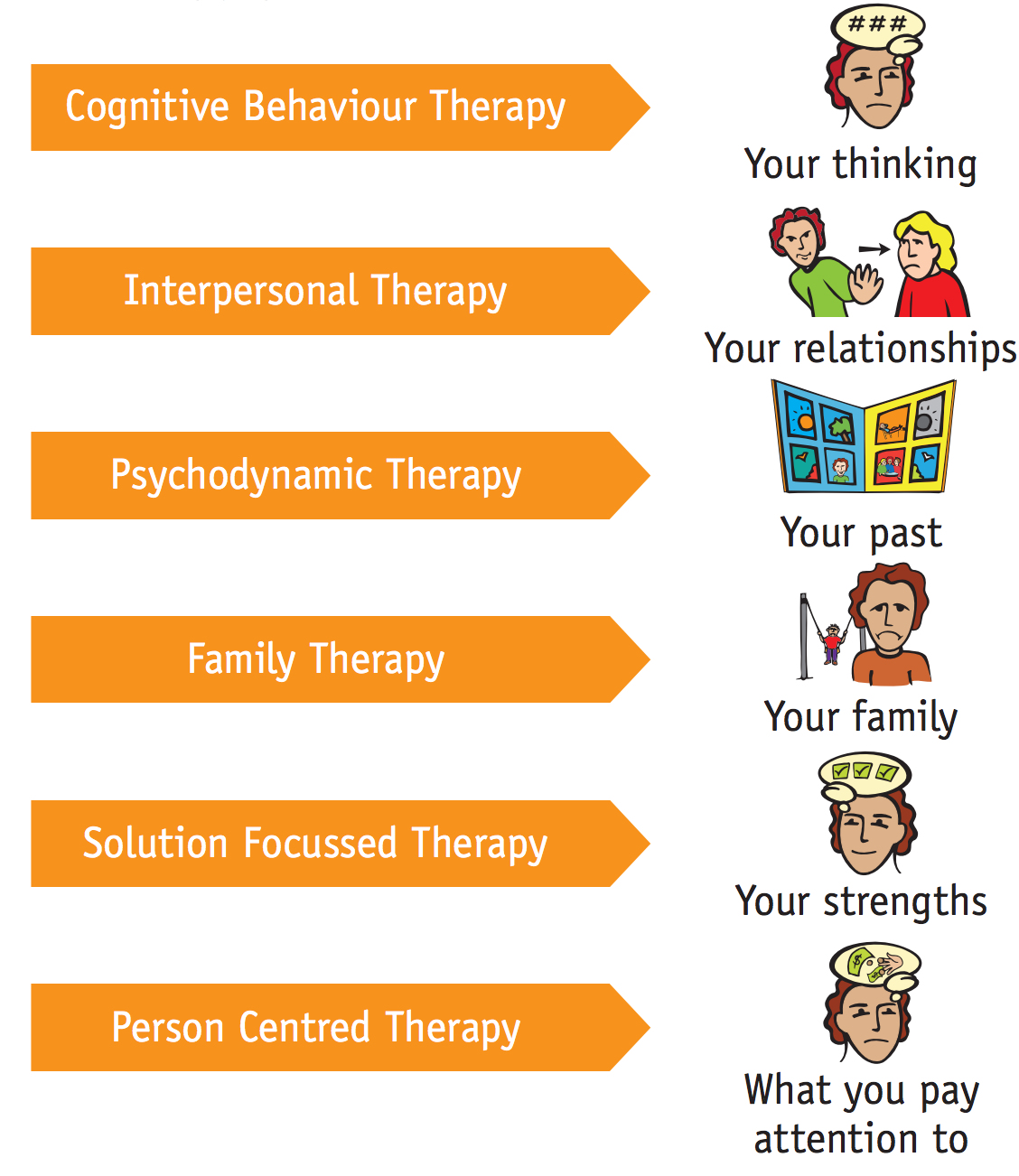Accessible low cost therapy: A Step-by-Step Plan
Discovering the Benefits of Virtual Therapy in Modern Mental Healthcare
The rise of virtual therapy marks a significant shift in psychological healthcare. It provides improved accessibility, allowing individuals from diverse histories to look for help without geographical constraints. Versatility in scheduling accommodates differing way of lives, while the comfort of home can cultivate visibility. However, the ramifications of these changes prolong past plain benefit. The evolving landscape of therapy raises important questions about its lasting effects on patient engagement and therapy results.
Improved Availability for All
Although conventional therapy often offers obstacles such as geographical place and scheduling problems, virtual therapy substantially boosts access for people looking for psychological health and wellness support. By removing the requirement for physical traveling, virtual therapy allows clients from remote areas or those with movement challenges to get in touch with certified experts. This setting of therapy can reach underserved populations that might do not have neighborhood psychological health and wellness sources, thus attending to variations in accessibility to care. Furthermore, virtual systems can provide to varied requirements, providing services in multiple languages and suiting numerous cultural histories. Clients can engage with a wider variety of specialists, supplying them with options that align with their certain demands and preferences. This increased ease of access promotes a more inclusive setting, allowing individuals to seek help without the preconception commonly related to in-person gos to. Overall, virtual therapy stands for a considerable development in making psychological health care much more easily accessible to all.
Flexibility in Scheduling Procedure
As virtual therapy remains to get grip, its fundamental flexibility in scheduling sessions confirms to be a considerable benefit for lots of individuals. Unlike standard in-person therapy, virtual therapy permits clients to pick session times that ideal fit their personal and professional commitments. This flexibility accommodates those with requiring work schedules, family commitments, or various other commitments that can make attending physical appointments testing.
Furthermore, customers can conveniently reschedule or readjust their sessions as required, decreasing the stress connected with inflexible consultation systems. The availability of different time slots throughout the week, consisting of evenings and weekends, better boosts access. This versatility not only urges uniformity present but additionally fosters a better dedication to the restorative procedure. Eventually, the adaptability in scheduling sessions stands for a transformative change in psychological healthcare, encouraging people to prioritize their wellness without compromising other aspects of their lives.
Comfort of a Familiar Setting
The convenience of an acquainted atmosphere considerably enhances the effectiveness of virtual therapy for lots of clients. Involving in therapy from the safety and security of their own homes enables people to feel more comfortable, reducing stress and anxiety that might accompany conventional in-person sessions. This knowledge can help with open interaction, making it possible for customers to express their thoughts and sensations more freely.
Additionally, the visibility of personal products and the capacity to regulate their environments can contribute to a sense of safety and security and leisure. Customers usually report that being in a comfortable area enables them to focus more on the restorative process instead than the establishing itself.
Additionally, the casual nature of virtual sessions can help dissolve obstacles that might exist in a conventional office setting, cultivating a much deeper connection with therapists. In general, the convenience of acquainted environments plays an important role in improving the healing experience and effectiveness for lots of individuals seeking mental health assistance.
Larger Variety Of Therapeutic Choices
A bigger variety of restorative alternatives appears with virtual therapy, allowing customers to gain access to different modalities that might not be practical in conventional settings. This adaptability makes it possible for people to check out diverse strategies such as cognitive-behavioral therapy, mindfulness methods, art therapy, and even specialized interventions like trauma-informed treatment or dialectical habits therapy.
Furthermore, clients can choose from a broader range of therapists, consisting of those that specialize in particular niche areas or particular populaces, improving the likelihood of locating an appropriate suit. Virtual platforms frequently give access to team therapy sessions, assistance areas, and workshops that might be geographically not available or else.
This range empowers customers to take part in their recovery procedure according to their special choices and needs, potentially raising motivation and commitment to therapy. As a result, the landscape of mental healthcare becomes a lot more inclusive and adaptable, catering to a bigger array of specific experiences and difficulties.
Decreased Preconception Bordering Therapy
Accessing therapy through virtual systems adds to a significant reduction in the stigma generally connected with psychological wellness treatment. By giving a discreet and private atmosphere, virtual therapy allows individuals to seek assistance without the concern of being evaluated or recognized. This anonymity allures to those that might otherwise think twice to pursue in-person therapy because of social assumptions bordering psychological health and wellness.
Additionally, as the occurrence of virtual therapy increases, it normalizes the discussion around mental health, making it a more appropriate component of daily life. Individuals typically feel much more comfortable discussing their experiences on the internet, promoting visibility and decreasing feelings of seclusion. The accessibility of these services likewise encourages a more comprehensive market to engage with psychological health and wellness resources, cultivating a society of assistance rather than pity. Inevitably, the surge of virtual therapy plays a vital role in reshaping attitudes towards seeking help, adding to an extra accepting culture relating to mental wellness challenges.
Cost-Effectiveness and Price

Reduced Session Prices
Lots of individuals looking for psychological health and wellness support locate that virtual therapy considerably decreases session prices compared to standard in-person alternatives. The elimination of travel expenses and time off job frequently contributes to overall savings. Furthermore, several virtual specialists supply competitive rates due to lower above expenses related to preserving a physical office. This shift in expense permits clients to accessibility high quality psychological health solutions without the monetary strain that may feature conventional therapy. For several, this affordability allows more frequent sessions, which can boost treatment end results. Because of this, virtual therapy not just democratizes accessibility to psychological health and wellness treatment however additionally offers a lasting economic model that lines up with clients' budgets, making psychological wellness assistance much more obtainable for a wider target market.
Expanded Gain Access To Choices
While standard therapy often offers logistical barriers, virtual therapy considerably broadens access alternatives for people looking for psychological healthcare. By eliminating the requirement for traveling and permitting adaptable organizing, virtual therapy accommodates diverse way of lives and commitments. This availability is specifically advantageous for those in remote areas or with movement difficulties. Furthermore, the cost-effectiveness of virtual therapy minimizes monetary stress, making mental health solutions more obtainable. Lots of systems offer tiered prices or gliding range costs, advertising cost. Insurance coverage firms increasingly recognize virtual therapy, more enhancing its monetary you could try here ease of access. In general, virtual therapy not only broadens the extent of who can receive care yet also addresses economic obstacles, making psychological wellness assistance much more comprehensive and achievable for all.
Boosted Continuity of Care
Improved connection of care becomes a substantial benefit of virtual therapy in modern mental health treatment. This method allows people to keep consistent interaction with their therapists, no matter geographical obstacles or organizing problems. virtual therapy. The adaptability of virtual sessions promotes normal check-ins, which are vital for keeping an eye on progression and adjusting treatment plans as essential
Additionally, digital health documents and telehealth platforms promote seamless details sharing among treatment carriers. This interconnectedness ensures that all specialists included in a person's care are upgraded on therapy advancements, leading to even more worked with and efficient interventions.
Clients typically experience decreased anxiousness and enhanced interaction because of the benefit of accessing therapy from acquainted atmospheres. Such access improves adherence to treatment routines, ultimately improving results - adhd counselling. To sum up, virtual therapy not only bridges spaces in psychological wellness solutions but additionally fortifies the continuity of care, an essential part of successful therapeutic partnerships
Often Asked Questions
Just How Does Virtual Therapy Make Sure Privacy and Personal Privacy for Clients?
The existing concern addresses the measures virtual therapy utilizes to protect customer confidentiality. Utilizing encrypted systems, secure logins, and compliance with policies like HIPAA, virtual therapy assurances that delicate details continues to be exclusive and unattainable to unapproved people.
Can I Switch Therapists Easily in Virtual Therapy?
Switching specialists in virtual therapy is usually uncomplicated. Customers can connect their need for an adjustment with the system, enabling for adaptability in discovering a far better suit without the logistical difficulties of in-person visits.
What Technology Do I Need for Virtual Therapy Procedure?
To participate in virtual therapy sessions, an individual usually needs a trustworthy web connection, a computer or smart device with a video camera and microphone, and accessibility to a safe and secure video clip conferencing platform defined by their specialist.

Are Virtual Therapy Sessions as Effective as In-Person Procedure?
Current studies show that next page virtual therapy sessions can be similarly effective as in-person sessions, depending on the individual's choices and circumstances. Aspects such as convenience and ease of access may boost the total therapeutic experience for some clients.
What Should I Do if I Experience Technical Issues During a Session?
If technical issues emerge during a session, one need to calmly connect the trouble to the specialist, effort to reconnect, or switch to a backup method. Patience find more information and adaptability are essential in managing these interruptions.